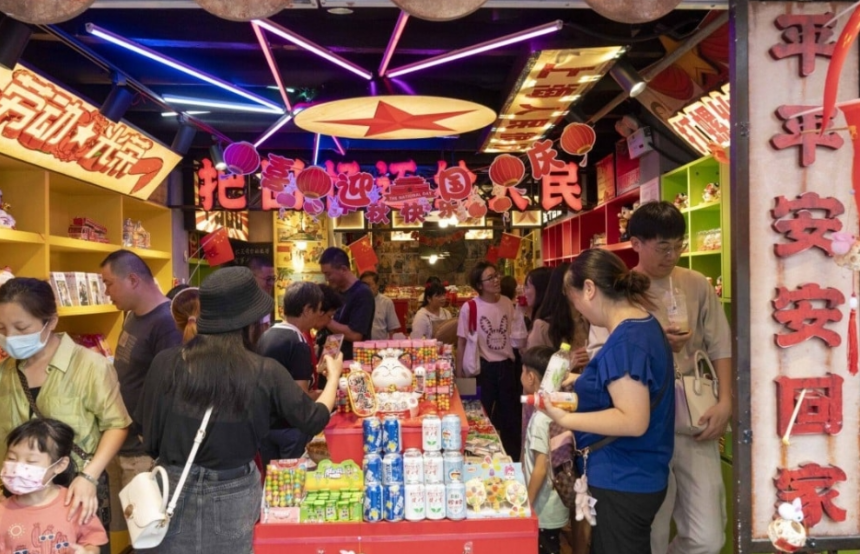Shanghai — Shanghai, China’s largest city and financial hub, reported a significant 9.4% drop in retail sales for June, marking the city’s worst monthly figure since the pandemic lockdowns in spring 2022. This decline highlights ongoing weaknesses in domestic consumption within the city.
The Shanghai Statistics Bureau noted that the primary driver of this decline was a 13.5% drop in sales of daily necessities and durable goods. While the national retail sales increased by 2% in June, down from a 3.7% growth rate in May, Shanghai’s performance significantly lagged behind.
“Shanghai’s overall performance in the first half was worse than that of the neighboring Yangtze River Delta,” said Peng Peng, executive chairman of the Guangdong Society of Reform think tank. He attributed the slump to poor sales of big-ticket items like automobiles and houses.
The city’s food consumption slightly dipped by 1.7%, while clothing sales fell by 5%. Fuel sales, including petroleum and gas, also decreased by 4.7%. Despite a boost in local consumption during the Labour Day holiday in May, which generated over 53 billion yuan (US$7.3 billion), retail sales growth has been negative since February, except for a brief increase in May.
Shanghai’s gross domestic product grew by 4.8% in the first half of the year, slightly below the national growth rate of 5%. The slump in retail sales has been particularly felt in industries such as high-end hospitality. Gavin, a pseudonym for a bartender at a high-end whiskey bar, noted that many loyal customers have left Shanghai for places like New York, impacting business.
In the first half of 2024, retail sales in Shanghai decreased by 2.3% year-on-year to 916.6 billion yuan, contrasting with a 3.7% increase in national retail sales to 23.6 trillion yuan.

